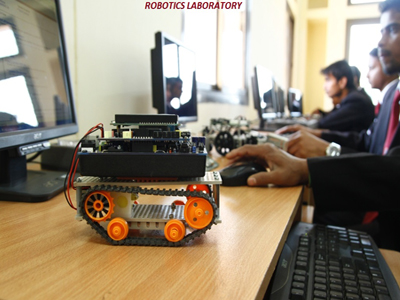Education Methodology
The education methodology encourages independent thinking and helps the students in developing holistic perspectives, strong domain knowledge, contemporary skill-sets, and positive attitudes.
It has evolved a comprehensive student-centric learning approach consisting of several stages, designed to add significant value to the learners' understanding in an integrated manner.
